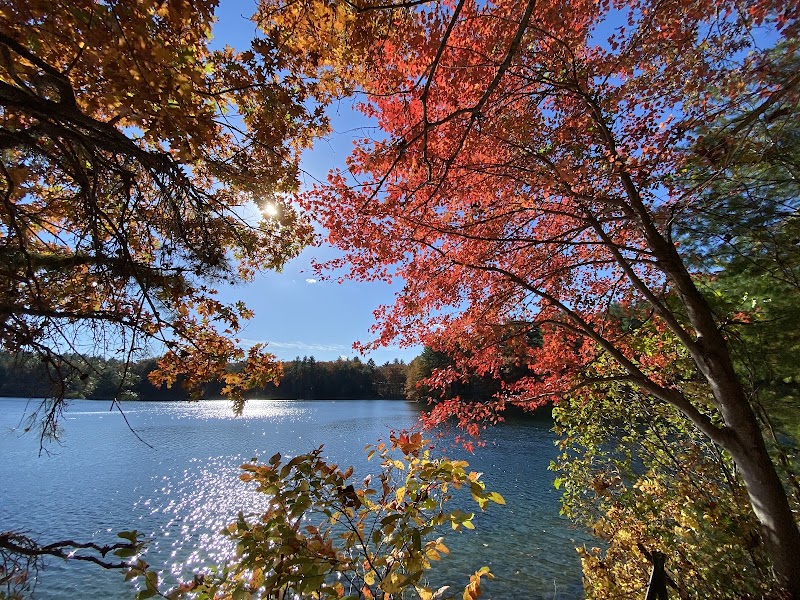
Unlock the Past: Best History Tour Near Boston, Massachusetts
Explore Boston's revolutionary roots on a history tour that connects you directly with iconic landmarks and untold stories. From the Freedom Trail to the U.S.S. Constitution, this guided journey combines vivid storytelling with practical travel tips to ensure a rewarding experience.
Plan for Comfortable Walking
Wear supportive shoes suited for uneven brick sidewalks and occasional cobblestone streets to keep your feet comfortable through the 2.5 miles of the Freedom Trail.
Start Early to Avoid Crowds
Begin your tour in the morning, especially during peak season, to experience popular sites before the influx of visitors and enjoy cooler temperatures.
Bring Water and Weather-Appropriate Gear
Boston’s weather can shift rapidly; carry a water bottle and layers to stay hydrated and comfortable throughout your tour.
Use a Guided Tour for Deeper Insight
Booking a guided history tour offers context and stories not found in guidebooks, making your journey through Boston’s past richer and more interactive.
Unlock the Past: Best History Tour Near Boston, Massachusetts
Boston's streets invite you into a journey that stretches back centuries—where each corner, stone, and building guards a story from America's defining moments. A history tour near Boston offers an immersive encounter with the roots of revolution, independence, and early urban life. This experience isn't just a walk through time but a chance to engage practically with the city’s layered past.
Start with the Freedom Trail, the iconic 2.5-mile red-brick path connecting 16 historic sites like the Old State House, Paul Revere's House, and the Bunker Hill Monument. Each stop unveils tales of rebellion and governance, framed by colonial architecture standing resilient amid a modern skyline. The terrain here is urban and accessible, perfect for a self-paced or guided exploration.
For those craving a more focused historical adventure, nearby Charlestown presents the U.S.S. Constitution Museum, where naval history pushes forward in waves of discovery, and the vibrant harbor whispers maritime legends. These spots offer practical amenities like guided tours and visitor centers, ensuring you maximize your visit.
When planning your history tour near Boston, consider timing to avoid heavy crowds—early mornings or weekdays during spring and fall provide cooler temperatures and quieter streets. Wear comfortable shoes, bring water, and prep for variable weather; Boston’s coastal climate can surprise even seasoned travelers.
For a deeper connection, engage with local guides who animate stories beyond textbooks, pointing out subtle architectural details and lesser-known anecdotes that turn a simple walk into an active dialogue with the past. This balance of vivid history and organized practicality makes Boston’s history tours essential for anyone eager to understand the forces that carved the city.
Explore history with a clear path, vivid stories, and practical steps necessary to walk in the footsteps of revolutionaries and visionaries. Boston’s heritage challenges you to see it not just as a city of buildings but as a fiercely living archive waiting to be discovered.
Nearby Trips
All Adventures
Boat Charters
Water Activities
Adventures near Boston, Massachusetts
Discover the unique and memorable adventures that make Boston, Massachusetts special.
Frequently Asked Questions
What is the ideal route for a history tour in Boston?
The Freedom Trail offers a self-guided, 2.5-mile route linking 16 key historic sites, making it the best starting point for most visitors. There are also guided tours for more detailed storytelling.
Are history tours accessible for people with mobility issues?
Many sites along the Freedom Trail provide wheelchair access, but parts of the trail include uneven brick and cobblestone surfaces. Planning ahead and contacting specific sites for accommodations can improve accessibility.
Can I visit U.S.S. Constitution during the history tour?
Yes, the U.S.S. Constitution Museum in Charlestown is open to visitors with both self-guided tours and ranger-led programs, providing rich naval history experiences complementary to Boston’s land-based sites.
What’s the best time of year to take a history tour in Boston?
Spring and fall offer mild weather and smaller crowds, making them optimal seasons for comfortable walking and enjoying the city’s historic landmarks.
Are there local guides who specialize in niche historical themes?
Yes, many local tour operators offer focused experiences on topics like colonial revolutions, maritime history, or African American heritage, allowing deeper dives into Boston’s diverse past.
What should I know about environmental preservation while touring historic Boston?
Historic Boston encourages respectful use of public spaces. Carry out trash, stick to marked trails, and avoid touching fragile historical artifacts or architecture to help preserve the city’s heritage.
Recommended Gear
Comfortable Walking Shoes
Necessary to handle varied surfaces including bricks and cobblestones with cushioning and support.
Water Bottle
Stay hydrated, especially on warm days when walking extensive urban trails.
Weather-Appropriate Layers
Layering helps adapt to temperature changes from morning to afternoon and unexpected weather shifts.
Portable Phone Charger
Ensures your device stays powered for sightseeing apps, photos, and navigation throughout the day.
Local Insights
Hidden Gems
- "The Granary Burying Ground offers quiet reflection at the resting place of revolutionary figures."
- "The Rose Kennedy Greenway provides a vibrant, modern contrast with art installations and peaceful waterfront views."
Wildlife
- "Birdwatchers may spot migrating shorebirds along the Charles River banks during spring and fall."
- "Squirrels and urban foxes occasionally cross paths near Boston Common, adding a lively natural twist to the city’s history tours."
History
"Boston holds a pivotal role in American independence: its cobblestones echo with the Boston Massacre, the Midnight Ride of Paul Revere, and early constitutional debates."